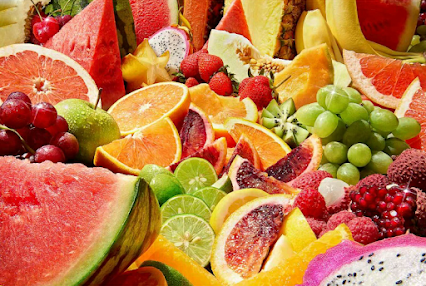The Benefits of Eating Fruits and Vegetables if they are high in sugar
What are the benefits of eating fruits and vegetables if they are high in sugar?
The Sweet Truth:
"The Benefits of Eating Fruits and Vegetables, Even When High in Sugar"
Introduction
In the world of nutrition, sugar has garnered a notorious reputation. Excessive sugar consumption has been linked to a host of health issues, including obesity, diabetes, and heart disease. Consequently, when we hear that fruits and vegetables are high in sugar, it can raise concerns. However, it's essential to understand that not all sugars are created equal. Fruits and vegetables, despite their sugar content, offer a plethora of health benefits that far outweigh any potential drawbacks.
Natural Sugars vs. Added Sugars
First, let's clarify the difference between natural sugars found in fruits and vegetables and added sugars. Natural sugars are, as the name suggests, naturally occurring in plant-based foods. They come bundled with essential nutrients, fiber, and antioxidants. In contrast, added sugars are artificially introduced during food processing and provide little to no nutritional value. The sugars we need to watch out for are the added sugars in processed foods and sugary beverages, not the natural sugars in whole foods.
Nutrient Density
One of the most significant advantages of eating fruits and vegetables, even those high in natural sugars, is their exceptional nutrient density. These foods are packed with essential vitamins, minerals, and antioxidants that promote overall health. For instance, fruits like oranges and strawberries provide vitamin C, which boosts the immune system and supports skin health. Meanwhile, vegetables such as spinach and broccoli offer a wealth of vitamins A and K, which are crucial for vision and bone health.
Fiber Content
Fruits and vegetables are excellent sources of dietary fiber. Fiber not only aids digestion but also helps regulate blood sugar levels. The fiber content in whole fruits and vegetables slows down the absorption of sugars, preventing rapid spikes in blood sugar. This is in stark contrast to sugary snacks and drinks that can cause a sharp increase in blood sugar levels, leading to energy crashes and cravings.
Antioxidants and Phytochemicals
High-sugar fruits and vegetables are also rich in antioxidants and phytochemicals. These compounds play a vital role in protecting the body from oxidative stress and chronic diseases. For example, blueberries, known for their sweetness, are packed with antioxidants that support brain health and may reduce the risk of age-related cognitive decline. Similarly, beets, with their natural sugars, contain betalains, powerful antioxidants that can help reduce inflammation.
Hydration and Electrolytes
Many fruits and vegetables have a high water content, which helps keep you hydrated. Watermelon, for instance, is not only naturally sweet but also an excellent source of hydration during hot summer days. Additionally, potassium-rich foods like bananas and potatoes, which may contain natural sugars, help maintain proper electrolyte balance and support heart health.
Weight Management
Contrary to what you might expect, including fruits and vegetables in your diet can actually aid in weight management. Their high fiber content promotes a feeling of fullness, reducing overall calorie intake. Plus, the vitamins and minerals they provide are essential for maintaining a healthy metabolism.
Conclusion
In conclusion, the fear of consuming fruits and vegetables due to their natural sugar content is largely unfounded. These foods offer a multitude of health benefits, including nutrient density, fiber, antioxidants, and hydration, all of which contribute to overall well-being. Rather than avoiding high-sugar fruits and vegetables, focus on reducing added sugars in your diet from processed foods and sugary beverages. By doing so, you can enjoy the sweet rewards of nature's bounty while supporting your health and longevity.




Comments
Post a Comment